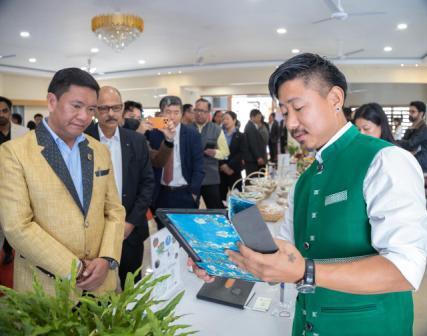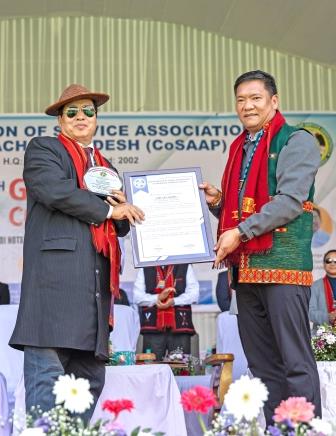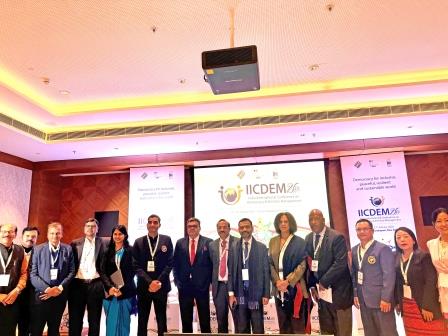-
 Startup success stories reflect potential of state’s youth: CM
Startup success stories reflect potential of state’s youth: CM
-
 Mein participates in vintage Willys Jeep Rally, inaugurates World War…
Mein participates in vintage Willys Jeep Rally, inaugurates World War…
-
DG Assam Rifles visits Khonsa Battalion
-
Governor advises DGP to take firm action on illegal migration
-
International white water kayaking to be held on the Tawang…
-
Raja convenes high-level meeting on effective traffic management
-
 NPS concerns genuine, needs careful consideration: CM Khandu
NPS concerns genuine, needs careful consideration: CM Khandu
-
Women-run kitchens showcase local cuisine
-
 Team Arunachal Pradesh participates in IICDEM 2026; leads thematic…
Team Arunachal Pradesh participates in IICDEM 2026; leads thematic…
-
24hr bandh hits normal life in Lower Subansiri
Although the release event of the draft 5th Science, Technology and Innovation Policy (STIP) on New Year’s Day somehow escaped the desired level of media focus for reasons whatsoever, there are quite a number of proposals in it which have been welcomed by the scientific community of the country. While it’s clear to observe that the overall arc has been on building a more robust ecosystem that promotes research and innovation on the part of both individuals and organizations, the major takeaways in this direction is the attempt to make sure that funds are steadily available for stakeholders in research in science, technology and innovation and availability of scientific knowledge and data to all. Along with a host of radical changes the STIP envisages, these two in particular if implemented will come as the much-awaited doses of encouragement for all stakeholders and in a way arrest the diaspora of the best Indian brains who annually head for the US and the West in hordes in search of careers in science and technology.
The ‘One Nation, One Subscription’ policy for scientific journals which is one of the conspicuous features of the draft will no doubt be hailed by all in the country’s scientific community including individual researchers. It’s a matter of fact that for carrying research in areas of science and technology, either basic, advanced or critical, accessing the world’s best scientific journals is a must and in 99% of cases they are too expensive to afford. As part of the policy, the government will now purchase bulk subscriptions of all important scientific journals published across the world and provide them free to everyone in the country. It has been estimated that the government would be spending Rs 2,000- 3,000 crore annually for it and a Science, Technology and Innovation Observatory serving as the central repository of all kinds of data generated from scientific research in the country would be made freely accessible to everyone. Financing has been a major bottleneck in advancement of science and technology in India and for its mitigation a national STI Financing Authority and an STI Development Bank to cater to long term investments in select strategic areas will be established. In the new STI ecosystem that the policy aims to build, the immediate beneficiaries are going to be long and medium-term projects, commercial ventures and start-ups who deal with emerging technologies and more importantly, R&D at grassroots level will get a boost. For all of whom labs are the ‘second homes’, i.e. research scholars and stipendiary trainees, it’s great news since a mechanism for timely disbursal of grants will now be in the offing.
The draft STIP promises to be a path-breaking effort and with precise implementation, science and technology in the country can get the right direction to move ahead.

Kenter Joya Riba
(Managing Editor)She is a graduate in Science with post graduation in Sociology from University of Pune. She has been in the media industry for nearly a decade. Before turning to print business, she has been associated with radio and television.
Email: kenterjoyaz@easternsentinel.in / editoreasternsentinel@gmail.com
Phone: 0360-2212313

